Illinois Baptist
The real bucket list
12 things to do before you see Jesus
 Adam Cruse
Adam Cruse

 Adam Cruse
Adam Cruse

Nashville, Tenn. | The new president of LifeWay Christian Resources is a native of Illinois. Ben Mandrell (pictured at right with his family) was elected June 28 to lead the 128-year-old publishing house. Mandrell, who currently pastors a church in the Denver area, grew up in Tampico in northwestern Illinois.
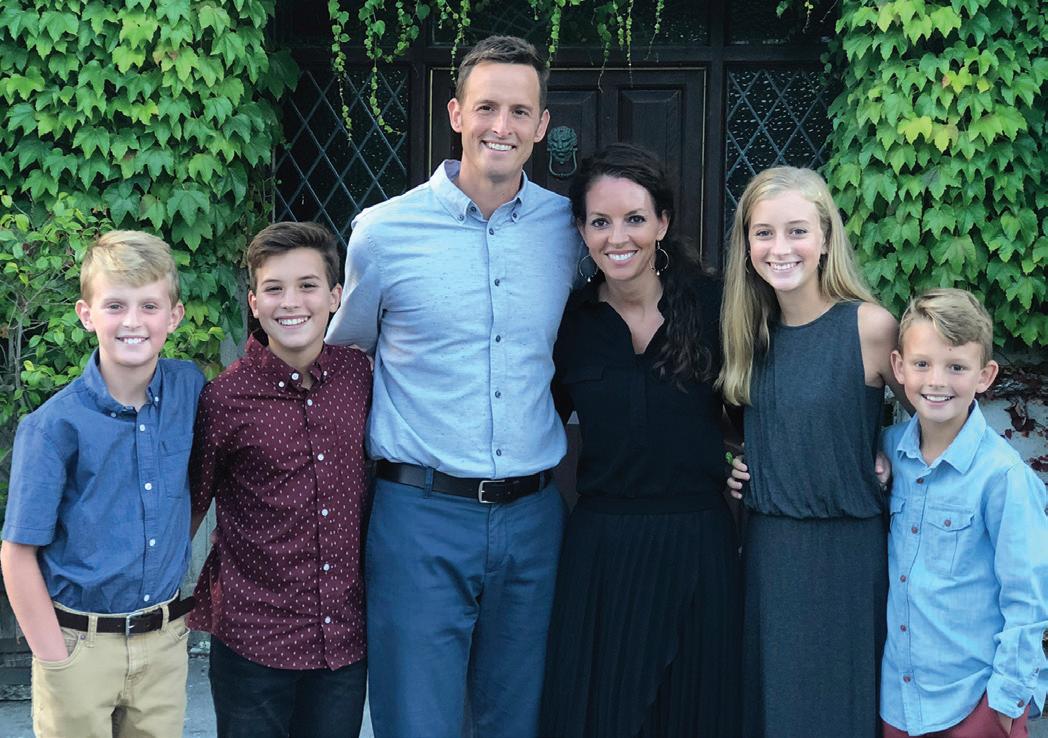
“One of the reasons I believe God has raised me up for this season at LifeWay is because I have spent the lion’s share of my life outside the South,” Mandrell told the Illinois Baptist in an exclusive interview. “While I married a beautiful Southern gal, and my first pastorate was in Tennessee, I am not a very southern Southern Baptist. I believe this gives me fresh eyes and a unique perspective.”
Mandrell, 42, follows former LifeWay president Thom Rainer, who announced his retirement last August after leading the organization 13 years.


“What an incredible leader and future for LifeWay,” Rainer said of Mandrell’s nomination. “God has raised up the right man for the right leadership at the right time.”
Earlier this year, LifeWay announced the closure of all 170 of its retail stores across the country due to decreased profitability. The entity has committed to focus more on digital platforms and resources, and has promised LifeWay resources will still be available for purchase online.

In comments to the IB, Mandrell noted the need for more diversity in resources for different regions of the country.

“I truly believe that LifeWay has to begin looking hard at the various regions of the country and start asking the question, ‘What resources would work here? How could current resources be adapted to better fit the people who live here?’
Plus: Churches urged to join abuse prevention P. 11




Editor - Eric Reed
Managing Editor - Meredith Flynn
Graphic Designer - Kris Kell
Contributing Editor - Lisa Misner
Administrative Assistant - Leah Honnen
The general telephone number for IBSA is (217) 786-2600. For questions about subscriptions, articles, or upcoming events, contact the Illinois Baptist at (217) 391-3119 or IllinoisBaptist@IBSA.org

The Illinois Baptist is seeking news from IBSA churches. E-mail us at IllinoisBaptist@IBSA.org to tell us about special events and new ministry staff.

POSTMASTER: The Illinois Baptist is owned and published every three weeks by the Illinois Baptist State Association, 3085 Stevenson Drive, Springfield, Illinois 62703-4440. Subscriptions are free to Illinois Baptists. Subscribe online at IBSA.org.

Location: South Lawndale (La Villita)
Focus: Hispanic residents
Characteristics: The Hispanic population of South Lawndale is 66,100 (83%). The ancestry of the Latinos in this community include Mexican, Puerto Rican, and Central American.

Prayer needs: Pray that this community will come to know Christ. A new church plant will need to know how to connect with people of Catholic faith and love them as Jesus does.
– IBSA Church Planting Team
Snapshots from the world of Illinois Baptists
Worship attendance may moderate a person’s political views, particularly on race, immigration, and identity, according to research by the Democracy Fund Voter Study Group. Their data measured the views of people who voted for President Donald Trump in 2016, and how those views differ based on how often voters attend church.
– Democracy Fund Voter Study Group, Sept. 2018
the cooperative program

Giving by IBSA churches as of 6/28/19 $2,848,505
Budget Goal: $2,980,769
Received to date in 2018: $2,848,317
2019 Goal: $6.3 Million
NATE ADAMSSummer can be a very busy time for churches, and therefore for many devoted church leaders and members. Vacation Bible School, camps, mission trips, construction projects, and more can quickly fill the warm-weather months.
But summer also provides most of us with a few days of vacation, or at least staycation. If we’re wise, those days can be just as important as the ones we spend in ministry.
All of us need breaks in our routines and the daily patterns of our lives. We are often creatures of habit, whether those habits are daily, weekly, or monthly.
For example, when I am teaching or preaching about worship on a Sunday morning, I sometimes ask the congregation, “How many of you are sitting in about the same place that you sit every Sunday?” Usually at least threequarters of the room raises their hands, and then looks sheepishly at their familiar, nearby neighbors.
Then I ask, “How many of you parked in about the same place that you park every Sunday morning?” Again, most hands go up, and people quickly understand my point. Routine or ritual can become very poor substitutes for true, spiritual worship.
Likewise, the weekly or monthly patterns of our work, our down time, our relationships, and even our church commitments can too easily fall into almost thoughtless repetition. That’s why we need not only nights to pull away from our days, and sabbaths to pull away from our weeks, but also vacations to pull away from the sameness of our years.
Especially if your vacation is still ahead of you this year, let me encourage you to invest at least part of that time in three key “re’s”—refresh, reflect, and refocus.
Refresh. Giving yourself time to refresh physically is important, but so are spiritual and emotional refreshment. In addition to getting extra rest on your vacation, make some time for the replenishing things that really restore your soul. Take a long walk, or go fishing, or get alone with a great book. Have a long talk with your best friend. Take a drive to a solitary place and just decompress. You know better than anyone else what refreshes you. Make it happen!
Reflect. Once you’re starting to feel refreshed, take time to do some honest soul-searching. Are you happy with the pattern into which your life has settled? How do you feel about your job, your relationships, your life goals? Is your spiritual life healthy? Are you finding ways to serve and use your gifts? Does your life feel “on track,” and if not, what would it take to get back there? If you don’t have some serious time for reflection on your vacation, you are likely to return to the same habits and patterns from which you needed a break.
Refocus. And finally, allow your refreshed spirit and thoughtful reflection to lead you to a time of intentional refocus. When you return from vacation, how can you reorder your life to prioritize what’s truly important, and pull back from the things that are distracting you from your life’s true purposes? It’s sometimes hard to see changes that are needed when you are in the midst of your life’s routines. Let your vacation time show you what needs to be refocused.
When it comes to making your vacation time meaningful, “to re, or not to re, that is the question.” Just as a bad day can look much better after a good night’s rest, and a trying week can look much better once you reach the weekend, a vacation can provide a much-needed break to refresh, reflect, and refocus. May you find that time this summer.
Nate Adams is executive director of the Illinois Baptist State Association. Respond at IllinoisBaptist@IBSA.org.

Take time to refresh, reflect, and refocus.
CLOSING SOON – In the interim after CEO Thom Rainer’s retirement, LifeWay leadership announced closure of all 170 bookstores by year’s end. Mandrell starts with a clean slate and a digital-led distribution system.
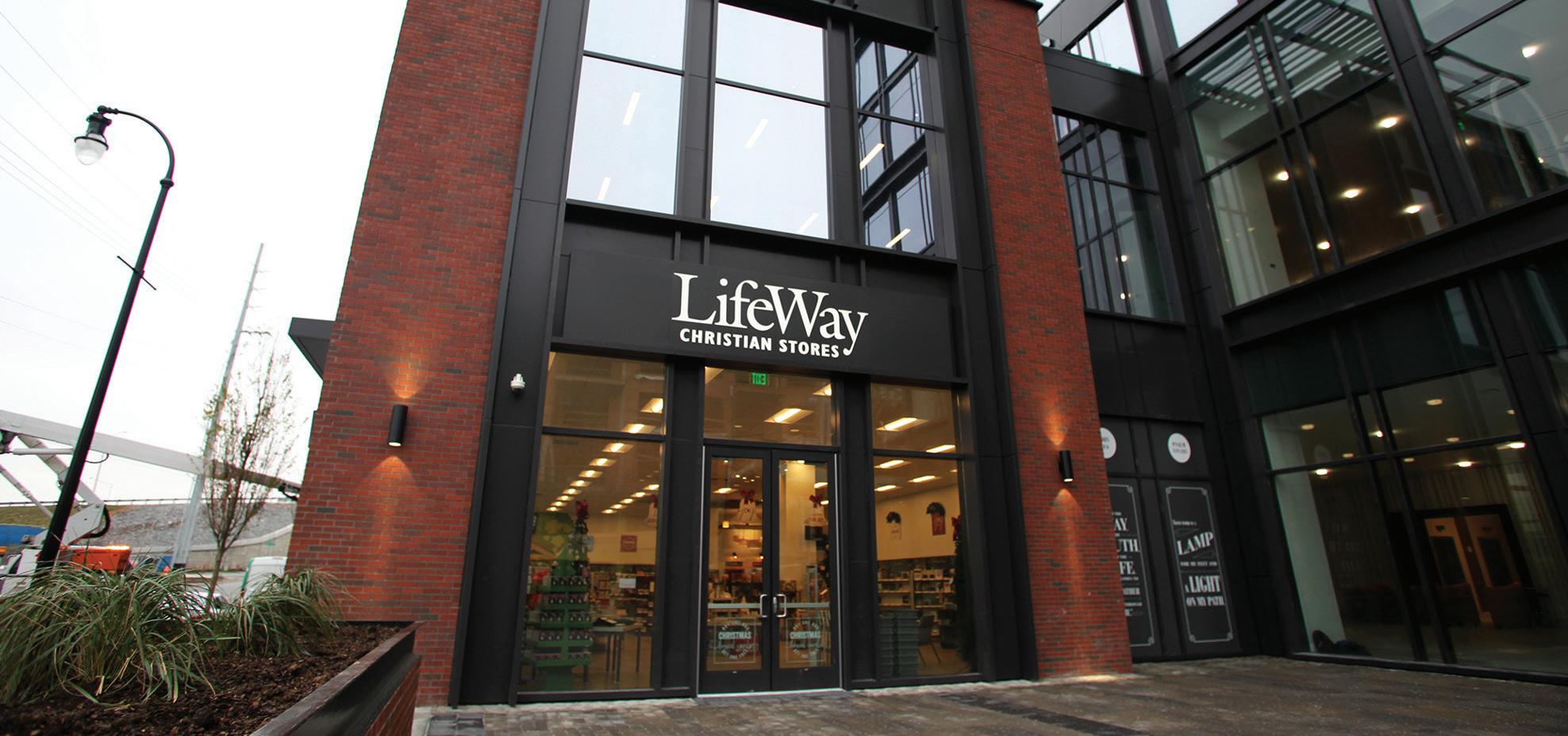
“Being a church planter in Denver, I have seen the huge disconnect between the SBC and the Midwest, West, and Northeast. I’m looking forward to being a change agent, and believe God has given me the vision to do this. It’s going to take time and a lot of work, but my wife, Lynley, and I are both ready for it.”
‘God is a calling God’
Mandrell planted Storyline Fellowship in Arvada, Co., in 2014 in partnership with the North American Mission Board and First Baptist Church, Orlando, Fla. The church launched in February 2015 with 250 people and has grown to 1,600 in weekly attendance, with over 2,800 this past Easter.

Two days after his nomination was announced, Mandrell preached an emotional message at his church. When considering the decision to leave his church and relocate his family to Nashville, the pastor said he had “a wrestling match with God like I have never experienced before.”
“All through Scripture, we learn that God is a calling God,” he said in his sermon. “He dials our number and we have to answer. We have to take his calls.”
Mandrell is a graduate of Anderson (Ind.) University, and also holds a master of divinity degree from Southern Baptist Theological Seminary in Louisville, Ky., and a doctor of ministry degree from Union University. Before planting Storyline Fellowship, he served as senior pastor of Englewood Baptist Church in Jackson, Tenn., from 2006-2013,
leading the church to grow from 1,800 to 2,600 in weekly attendance. Before becoming senior pastor, he served as the church’s college pastor and as director of discipleship ministries at Union University in Jackson.
He previously was on staff with Ouachita Baptist University in Arkadelphia, Ark., KLife Ministries of Orlando, Fla., and Sterling Christian School in Sterling, Ill.
Lynley Mandrell, a native of Jonesboro, Ark., and graduate of the University of Central Arkansas, currently serves as the director of Storyline Fellowship’s Kids Ministry. The Mandrells have four children.
It was in Tampico where Ben Mandrell first heard the gospel, when a woman in town held a birthday party for Jesus in her home and invited him to join the group. “My heart was ‘strangely warmed’ that day when I was just seven years old,” Mandrell said, referencing John Wesley’s famous quote about his own salvation, “and God put in my heart an insatiable desire for Scripture at that moment. I began reading a page of the Bible before going to bed, and in that little corner of Illinois, my passion to serve God was stirred.”
His family began attending an independent Baptist church in Tampico. Mandrell listened to Moody Radio broadcasts and began to dream of doing something special for God, he said. “I never, in my wildest dreams, thought that I would one day be invited to serve in such a special role as leading LifeWay. I’m so grateful and humbled by this unforeseen open door.”
– Meredith Flynn, with additional reporting from Baptist Press
IllinoisBaptist.org






Legal victory
The legal challenge to the constitutionality of the ministerial housing allowance is over—for now.
The Freedom From Religion Foundation (FFRF) announced June 14 it would not appeal to the U.S. Supreme Court its March judicial loss, thus concluding its latest effort to gain nullification of the allowance that is part of a 65-year-old federal law. The FFRF was not confident of its chances of winning its appeal given the current make-up of the high court, according to its news release.
A 1954 federal law permits churches to designate part of eligible ministers’ income as a housing allowance, enabling “ministers of the Gospel” to exclude for federal income tax purposes a portion or all of their gross income.
HAWKINS
In March, a three-judge panel of the Seventh Circuit Court of Appeals in Chicago ruled unanimously the clergy allowance does not violate the First Amendment clause that prohibits government establishment of religion.
GuideStone Financial Resources—the Southern Baptist Convention’s health and financial benefits entity—expressed gratitude for the decision.
“We are thankful for so many, including the U.S. Justice Department, that so ably argued on behalf of the constitutionality of the minister’s housing allowance,” said GuideStone President O.S. Hawkins. “It is our belief that had the case made it to the Supreme Court that the housing allowance would have been upheld as constitutional. Regardless, pastors and churches needn’t worry in the near-term about the housing allowance.”
In its March opinion, the Seventh Circuit panel agreed the housing allowance is constitutional under the Supreme Court’s church-state precedents, including the three-part Lemon test. That standard, named after the 1971 Lemon v. Kurtzman opinion, says a law must have a secular purpose, not primarily promote or restrict religion, and “not foster an excessive entanglement with religion,” in order to be considered constitutional.
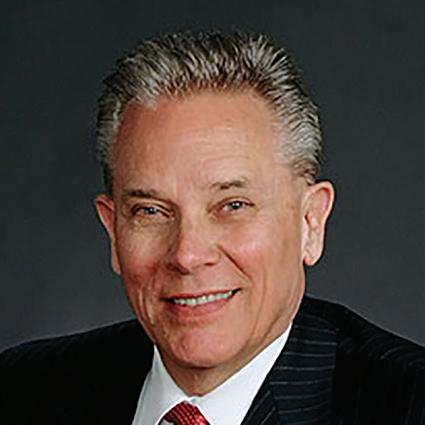
In considering an appeal, the FFRF, a Wisconsinbased atheist organization, said it decided the Supreme Court’s present composition—which consists of five apparent conservatives—would not be favorable to its case.
“After ‘counting heads,’ we concluded that any decision from the current court would put the kibosh on challenging the housing allowance for several generations.”
– From Baptist Press
At the Southern Baptist Convention in Birmingham, my wife, Victoria, and I sat through gut-wrenching testimony by survivors of sexual abuse by their pastors. We were angered by the inaction and even cover-up by those entrusted with spiritual care for those precious women. So, we were encouraged when messengers to the Southern Baptist Convention strongly condemned sexual abuse in our churches.
Our churches are called to a great mission: to make, baptize, and teach followers of Jesus Christ (Matthew 28:19-20).
Success in this mission requires fearless engagement with our culture and tender care of our congregations (Acts 20:28).
Our sex-crazed society is late to champion the value of women and see the harm of sexual abuse. But God created women (and men) in his image, and commissioned them to rule and care for creation, rear children together, and live in joyful fellowship. This has always been his priority.
Jesus valued women as a vital part of his ministry. He broke with culture by engaging a foreign woman with a checkered past for the purpose of evangelism. The first witnesses to Jesus’ resurrection were women. And women played key roles in the New Testament church.
The New Testament repeatedly calls the church to treat women (and all people) with dignity and purity:
“But sexual immorality and all impurity or covetousness must not even be named among you, as is proper among saints. Let there be no filthiness nor foolish talk nor crude joking, which are out of place…For you may be sure of this, that everyone who is sexually immoral or impure, or who is covetous (that is, an idolater), has no inheritance in the kingdom of Christ and God” (Ephesians 5:3-5).
And from 1 Thessalonians 4:6-8: “The Lord is an avenger in all these things, as we told you beforehand and solemnly warned you. For God has not called us for impurity, but in holiness. Therefore, whoever disregards this, disregards not man but God.”
As a husband, father, pastor, and Christ-follower, I am thankful for clear action on these matters. And, I call upon pastors, elders, deacons, ministry leaders, and church members to speak and act to uphold the created dignity of all persons.
Scott Nichols pastors Crossroads Community Church in Carol Stream.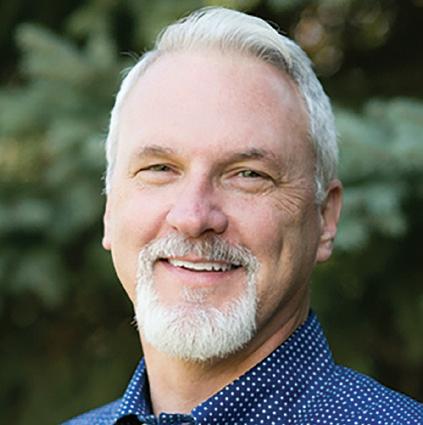
A complicated position on racism produces lengthy debate
Birmingham | The most discussed resolution at the Southern Baptist Convention in June centered on two theories many Baptists likely weren’t familiar with before the meeting. Resolution 9, the subject of so much debate that it eventually got its own hashtag on Twitter, focuses on critical race theory and intersectionality.

Both frameworks have their roots in Marxism, Southern Seminary President Albert Mohler said after the annual meeting, and are closely linked to moral relativism and liberal politics in America. Critical race theory and intersectionality also have given rise to “identity politics,” Mohler said, used to justify action or belief based solely on race, gender, or other identifying factors.
The 2019 Resolutions Committee, which included IBSA President and Chicagoland pastor Adron Robinson, acknowledged that both critical race theory and intersectionality have been appropriated by people with worldviews contrary to Christianity and “alone are insufficient to diagnose and redress the root causes of the social ills that they identify, which result from sin.”
The resolution goes on to affirm Scripture as the ultimate authority to redress social ills, and recommends that critical race theory and intersectionality “should only be employed as analytical tools subordinate to Scripture—not as transcendent ideological frameworks.”
Resolution 9 originally was submitted to the committee by California pastor Stephen Feinstein. The committee is free to decline submitted resolutions, and they considered doing that with what eventually became Resolution 9, chairman Curtis Woods told the Illinois Baptist, “but we appreciated the heart of Pastor Feinstein to protect the gospel from unbiblical assumptions and conclusions that are often associated with CRT/I as a worldview.
“We share that heart,” Woods said of the committee. “In our revisions, we affirm sufficiency of Scripture for addressing social ills and the gospel for creating true and lasting transformation in
people’s lives. We distinguished between a more narrow view of analysis and a more expansive worldview, so that we can condemn absolutizing CRT/I as worldview and yet not condemn all possible insights that may be gleaned.”
The complexity of the issues at hand didn’t dampen conversation about the resolution in Birmingham. The committee’s report was near the end of the two-day meeting, less than two hours before the scheduled adjournment. But messenger after messenger (Southern Baptist terminology for voters) went to microphones to ask questions and discuss many of the 13 resolutions, including Resolution 9. So much so that the committee’s report required two time extensions.
The resolution continued to spark debate after messengers approved it, with Baptist leaders taking both sides of the argument. Some agreed with the committee’s position that the resolution affirms the authority of Scripture while allowing there can be takeaways from theories that aren’t based in Christianity.
Others, like Mohler, warned against divorcing an analytical tool from the worldview on which it’s based. Both critical race theory and intersectionality can be deployed as such, Mohler said during the June 14 episode of his podcast, The Briefing. “The problem is, as Christians understand, that analytical tools very rarely remain merely analytical tools. Ideas, as we know, do have consequences…”
– Meredith FlynnBaptists meeting in Birmingham discussed and adopted 13 resolutions on a variety of topics, including:
“WHEREAS, Many in our culture assume the satisfaction of sexual desire is indispensable to human wholeness and flourishing, which leads some to affirm fallen sexual desires as a defining mark of personal identity…be it RESOLVED, That we call on Southern Baptist churches to call sinners to repentance while ministering, encouraging, fostering hospitality, and extending Christlike love toward those brothers and sisters who experience same-sex attraction.”
“WHEREAS, In recent years, we have observed a growing tension and culture of tribalism in our Convention over social, cultural, political, and, at times, secondary doctrinal points of disagreement, which has resulted in divisive words and actions
that grieve the Holy Spirit (Ephesians 4:30)… be it RESOLVED, That we commit to creating a cooperative culture that recognizes and advances the gifts of all Southern Baptists...”
“WHEREAS, The Southern Baptist Convention is comprised of a multitude of churches with diverse memberships, representing an array of political affiliations and showing due respect for political choice…be it RESOLVED, That we acknowledge the danger of political engagement overwhelming the priority of our mission; and be it further RESOLVED, That we acknowledge the opposite danger of disengaging from public issues and disregarding our obligation as citizens to encourage good, restrain evil, and thereby love our neighbors.”
Find the full text of the resolutions excerpted above and additional measures adopted in Birmingham at sbc.net/resolutions.

The series of abortion restrictions passed in several states this year is the result of a years-long push based on a fetal heartbeat bill authored in Ohio years ago, USA Today reported. The paper’s analysis of so-called “copycat” legislation—when a bill is copied and modified for its new context—found the Ohio bill was proposed 26 times until similar legislation passed in multiple states this year.

Janet Folger Porter directs Ohio advocacy group Faith2Action and wrote the legislation originally introduced in her state in 2011. “When I started it, there were those who said it was impossible,” Porter told The Cincinnati Enquirer. “But the state of Ohio motto says, ‘with God, all things are possible.’” Fetal heartbeat bills, which ban abortion after a heartbeat can be detected, passed this spring in Alabama, Georgia, Kentucky, Louisiana, Mississippi, Missouri, and Ohio.
Evangelical bioethicists are calling for a ban on gene editing even as it is being reported that fertility clinics desire to use the controversial technology.
Chinese scientist He Jiankui announced in November the births of the first genetically edited children, twin girls named Lulu and Nana. He led an effort in which the girls’ DNA was altered through the use of a tool known as CRISPR to guard them from the HIV virus their father has, He said.
Though news of the gene-edited babies drew widespread criticism, fertility clinics contacted He to ask him to teach their staffs gene editing for application in their services, according to a May 28 report by the news site STAT.
While some scientists have proposed an international moratorium on gene editing, evangelical bioethicists said a temporary hold is inadequate. Southern Baptist bioethicist C. Ben Mitchell told Baptist Press the “only way to prevent future harm to human beings is to ban the procedure and attach stiff penalties for violation of the law.”

Mitchell submitted a resolution on gene editing to the Southern Baptist Convention’s Resolutions Committee for consideration at the SBC Annual Meeting June 11-12 in Birmingham (see page 4). The editor of the international journal Ethics & Medicine offered three reasons gene editing is unethical:
“First, He’s experiments sacrificed dozens of human embryos. This was the first level of unethical practice.
“Second, He altered the germ cells or reproductive cells of the human subjects in his research. We should not alter the reproductive cells (sperm or egg) because those alterations will be passed from one generation to the next. If we create a genetic condition that either causes a disability or death, we are responsible for those results. And those alterations will be passed from generation to generation. There is no ethical way to run clinical trials of germline gene editing in humans.
“Finally, the whole enterprise is fraught with eugenic implications. Children—abled or disabled—are a gift, not a do-ityourself project. We should not be designing our descendants.”
Aaron and Melissa Klein lost their Oregon bakery and were required to pay $135,000 for refusing to create a cake for a lesbian commitment ceremony in 2013. On June 17, the U.S. Supreme Court sent their case back to the Oregon Court of Appeals for reconsideration in light of the high court’s decision in favor of fellow baker Jack Phillips, whose legal struggle with the Colorado Civil Rights Commission began when he refused to bake a cake for a gay couple’s wedding ceremony in 2012.
Last year, the Supreme Court similarly annulled a lower court’s decision against Washington florist Barronelle Stutzman, who declined to create flower arrangements for a same-sex wedding. But on June 6, her state’s Supreme Court decided against Stutzman again, ruling that the state’s judicial system did not show religious animosity toward her.
A memorial to World War I soldiers can stay standing in Bladensburg, Md., the U.S. Supreme Court ruled June 20. The American Humanist Association asked that the cross be removed in 2012, sparking a legal battle that has bounced around the courts since then. But
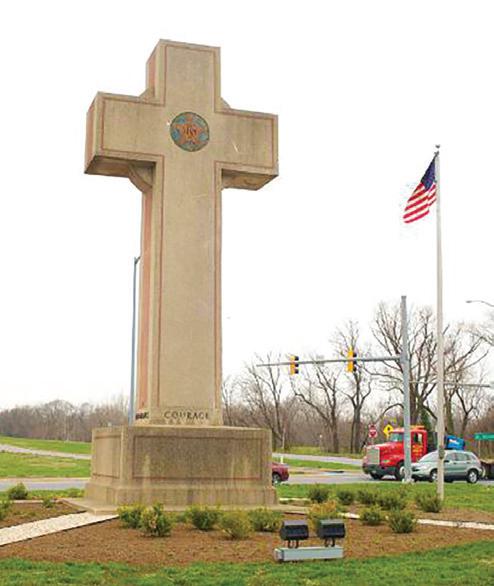
He’s announcement “was a siren that signaled an urgent need for global policy to ban human germline gene editing,” said Mitchell, professor of moral philosophy at Union University. “There is no way germline gene editing in humans can pass ethical muster.”
In June, Baptists meeting in Birmingham for the Southern Baptist Convention’s annual meeting approved the resolution condemning human germline alteration, calling on Congress to pass laws to make it unfundable and illegal, and asking international policy-making bodies to do the same.
– From Baptist Press
Justice Samuel Alito wrote in his opinion this month that the cross “has become a prominent community landmark, and its removal or radical alteration at this date would be seen by many not as a neutral act but as the manifestation of ‘a hostility toward religion that has no place in our Establishment Clause traditions.’”
– USA Today, Baptist Press, The Christian Post
DESIGNER GENES: SBC professor says, “We should not be designing our descendants.”
Evangelicals’ response to the crisis at the U.S. border points to significant divides on the immigration issue.

“The reports of the conditions for migrant children at the border should shock all of our consciences. Those created in the image of God should be treated with dignity and compassion, especially those seeking refuge from violence back home. We can do better than this.”
– Russell Moore, president of the Ethics and Religious Liberty Commission
“Just to clarify…reasonable people know we have a humanitarian crisis at/border but to suggest that immigrants are not treated with dignity & respect is wrong & plays to secular press who blame America for the problem. We r all very concerned and many of us are trying to help.”
– Texas pastor Jack Graham, following up his first tweet inviting Moore to the border
“We want to look away. But let’s not. Let’s not turn away. Let’s not return too quickly to our summer activities. Let’s let these reports and images prompt the deepest form of prayer. Let’s groan.”
– Author and pastor Max Lucado from San Antonio, at Christianity Today online

An eight-mile trip into the countryside ended at an old barn which had been converted into a restaurant. “The food’s good here,” one of the travelers said as we set out after the Sunday service on winding rural and sometimes gravel roads.
The former feed store set in corn fields was everything Cracker Barrel would hope to be, and just what we expected. What we didn’t expect was the poster taped to the door announcing the crossroads’ first “Drag Show” with three headshots of the lead performers.
“If the Drag Show has reached this place, then times really have changed,” someone in our little church group mumbled. “I guess there’s no going back,” I thought to myself, just a half-hour after preaching on the decline of our public morality in Illinois with the recent actions of the state legislature as my chief examples: legalized marijuana, expanded gambling, and abortion with virtually no limits. And did I mention the gay-pride flag flying for the first time over the state Capitol?
But maybe I was wrong.
A new Harris Poll commissioned by the gay activist group GLAAD shows the LGBT movement is losing ground among Millennials.
That was a surprise, even to the pollsters, who called the flagging support “alarming” and said it signals “a looming social crisis in discrimination.”
The survey shows that among 18- to 34-year-olds, LGBT acceptance dropped from 63% in 2016 to 45% in 2018.
As Baptist Press reported, the biggest drop from the previous year happened among young women, from 64% in 2017 to 52% in 2018. “But across all three years, the decline was especially noticeable among young males, dropping from 62% in 2016…(to) 35% in 2018.
Young people also registered a rise in discomfort in several specific scenarios: 39% said they would be “very” or “somewhat” uncomfortable learning that their child had been taught a lesson on LGBT history in school, compared with 27% in 2016. And 33% were uncomfortable with their child having an LGBT teacher, up from 25%.
While LGBT acceptance is almost steady among adults age 35 and older, declining support among Millennials may be like the “fist-sized cloud” on the horizon Elijah pointed out, the signal of change to come that, in the current climate, no one imagined possible.
 – Eric Reed
– Eric Reed
Mary Louise Garrison, 83, died June 7 in Shiloh. She served in IBSA’s communications department from 1989 to the mid-1990s, and was a member of Winstanley Baptist Church in Fairview Heights. She was preceded in death by her first husband, R.D. “Jack” Baker, who served as IBSA’s Sunday school director.

Garrison is survived by her husband, Rev. Wendell Garrison of Swansea; children Mike (Lola) Baker, Karen (Rocky) Holland, Greg (Joni) Garrison, Ruth (Robert) Tramm, and Mary Ann Quinley; daughter-in-law Nancy Baker; sister Lynda (James) Harper; 13 grandchildren; and 14 greatgrandchildren.
The Nominations Committee will soon draft a slate of candidates for at least 30 elected positions in IBSA leadership. The list of openings will be posted online this month. Organizers emphasize the important role committee members play in IBSA. In addition to IBSA’s six committees, the Nominating Committee will recommend people to serve on the Association’s three boards: IBSA, the Baptist Foundation of Illinois (BFI), and Baptist Children’s Home and Family Services (BCHFS).
Please pray about those you would recommend for service. Nominating instructions are posted online at IBSA. org/nominations.


”
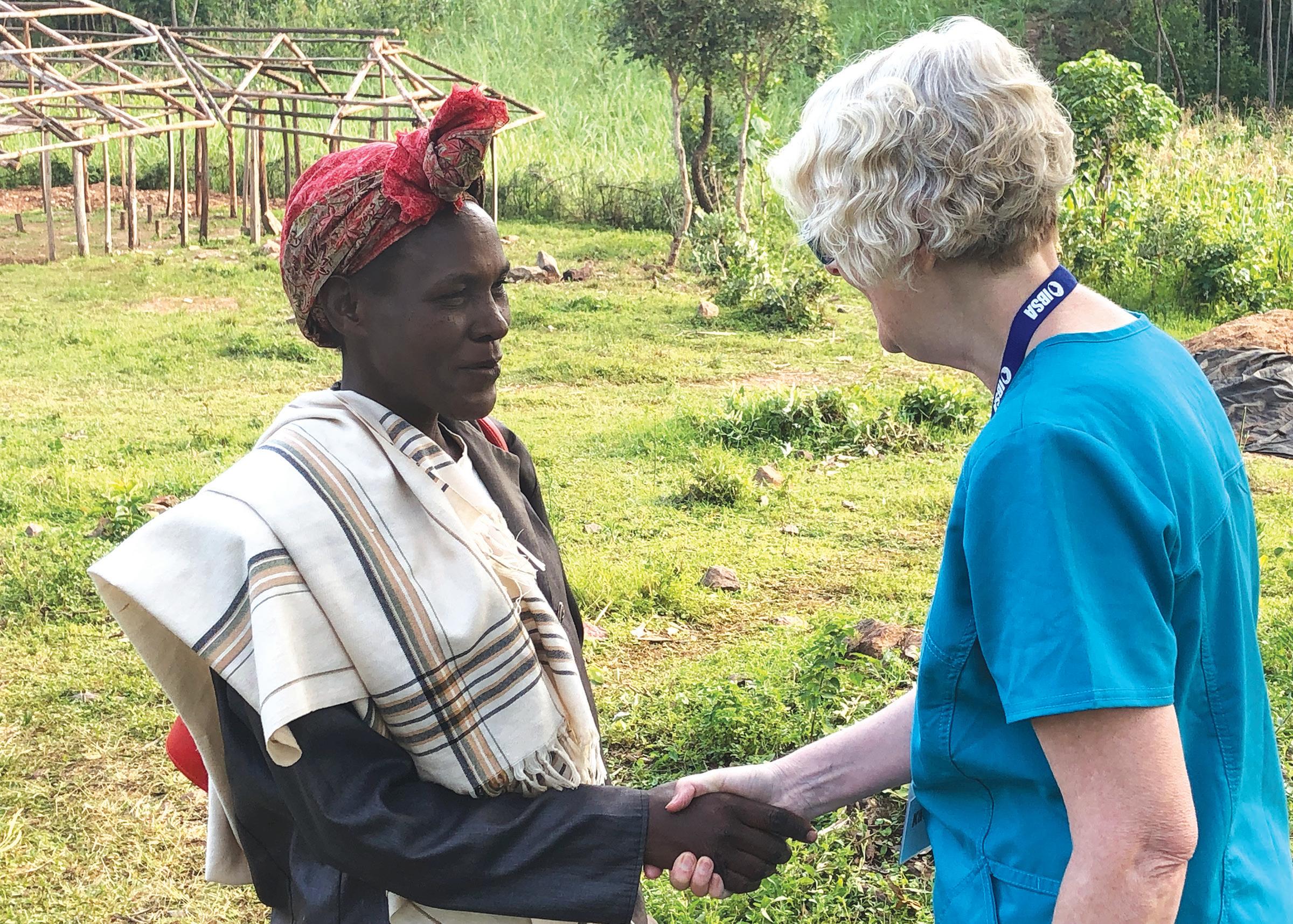
In the hills of western Kenya, 10 volunteers from central and southern Illinois saw hundreds of patients at a medical clinic and witnessed dozens of decisions for Christ. The team, led by IBSA’s Jeff Deasy and his wife, Kathy (right in photo above), camped just steps from the clinic, which they set up in partnership with a local Baptist church.
The Deasys, members of Chatham Baptist Church, served 20 years with the Southern Baptist International Mission Board, including 10 in Africa. They formed a ministry partnership with Pastor Robert Bichanga Moinde, who has since helped plant many churches working in a network to reach people in western Kenya.

“He was a pastor with a heart to reach his people!” Kathy Deasy said. “When we first met him, there were only two Baptist churches in the hills around his area.” The churches had started an orphanage and school to serve children in the region. Now, Deasy said, there are 18 churches, the school is registered with the Kenyan government, and the churches have built two dormitories for the children’s center.
One of the churches Moinde helped start is Mlimani Baptist, which hosted the Illinois medical clinic. At the clinic, patients met with Dr. Randy Oliver from First Baptist Church in Metropolis and Steven Jumaa, a clinician from Nairobi. The team, comprised of volunteers from the Chatham and
P. 6
Two years ago, Jeff and Kathy Deasy led an Illinois mission team to minister along the Amazon River in Brazil, where they previously served with the International Mission Board. In June, the couple took a medical mission team to East Africa to work alongside ministry partners they met while serving in Kenya.
Photos submitted by mission team
Continued from page 7
Metropolis churches and First Baptist in Carmi, helped patients and dispensed medications. Christians from local churches shared the gospel with each patient.
Near the end of the team’s time in Kenya, Jeff Deasy, IBSA’s associate executive director for the Church Cooperation Team, said it was obvious how God had worked to bring the trip together.
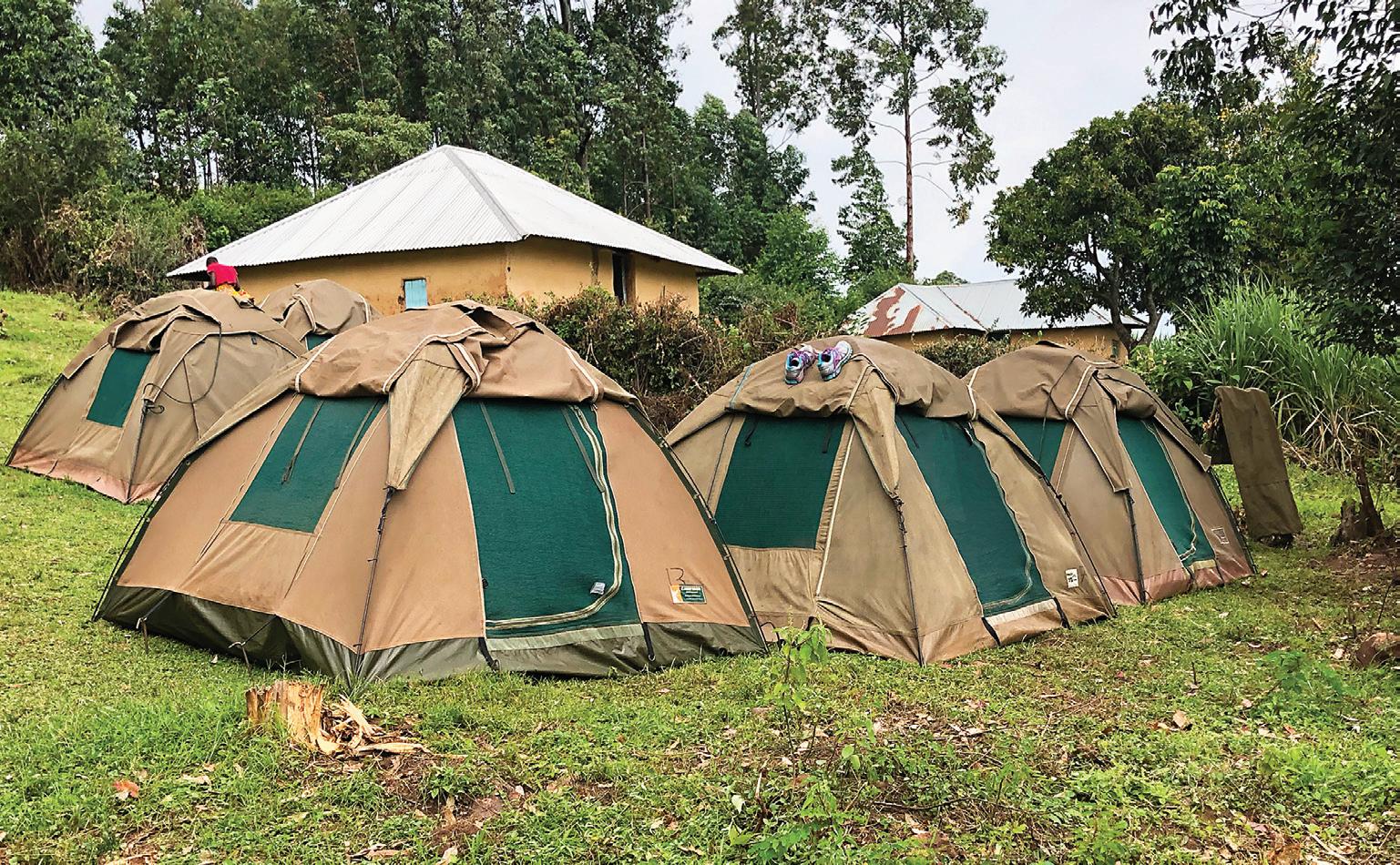

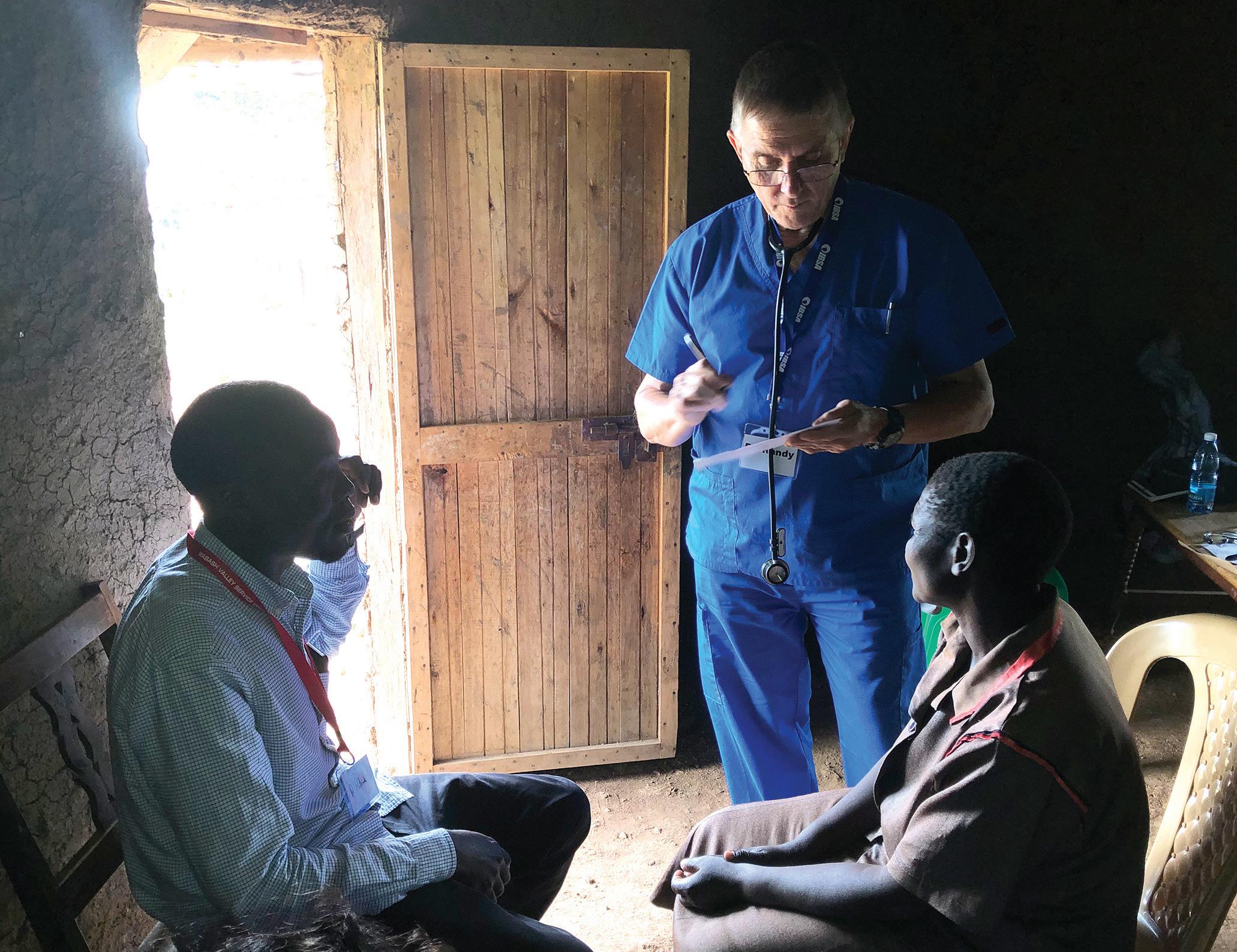
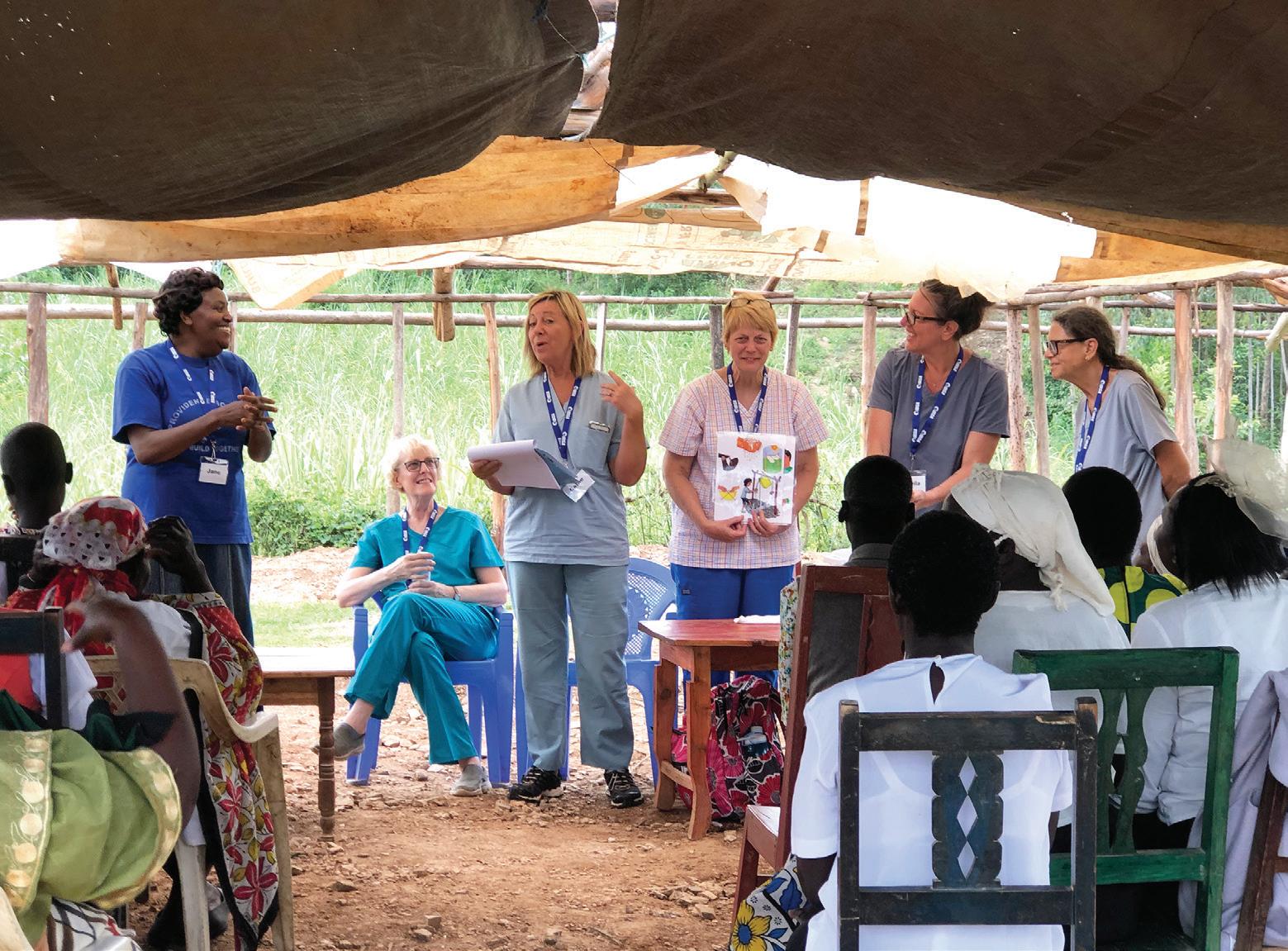
“The many people who were treated physically, the many people who heard the gospel personally, and the partnership between the American and Kenyan Christians has been nothing short of a miracle!” he reported.
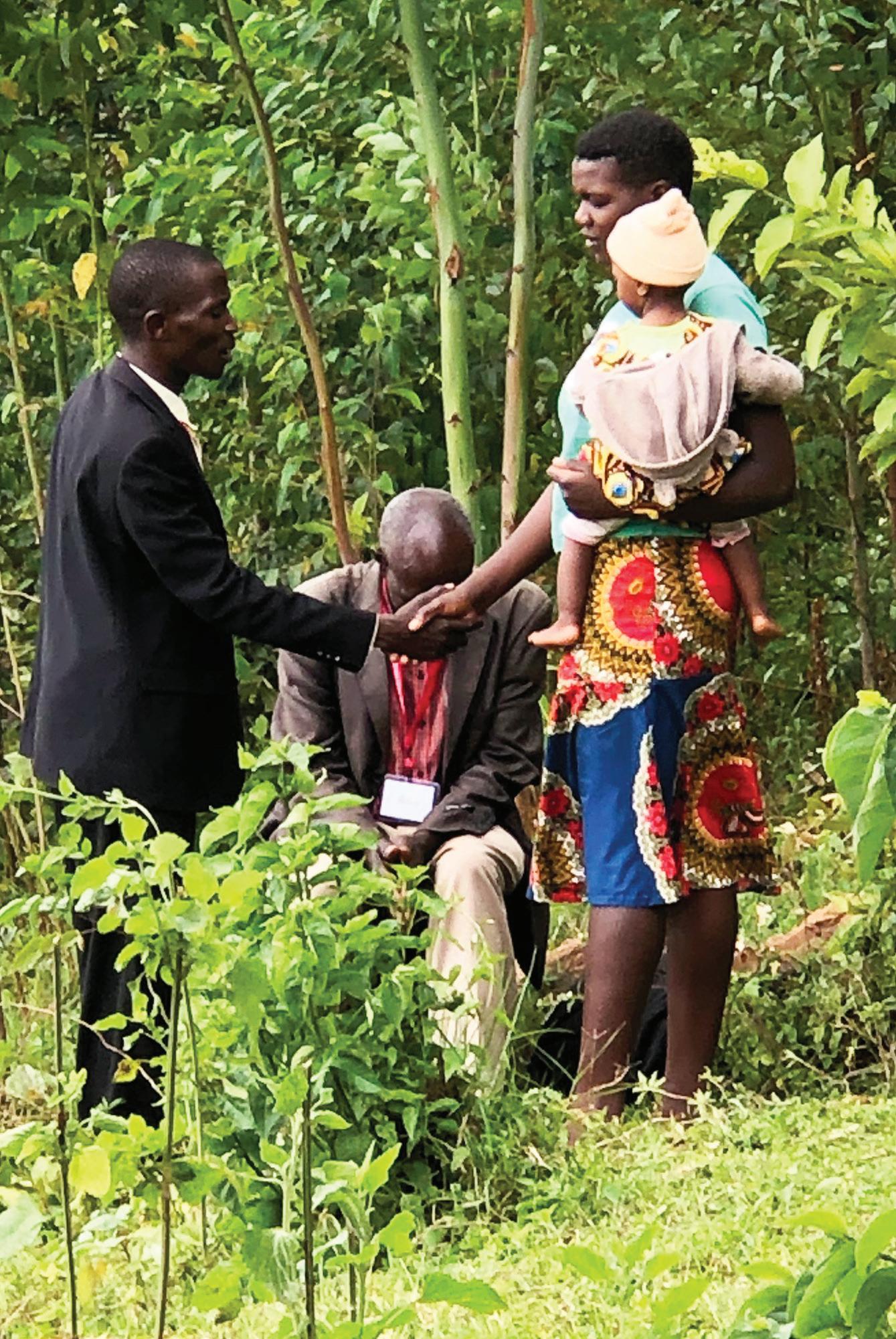
“Once again, we had the privilege of showing up and watching God work.”
The Kenya trip is one of many that IBSA churches take to Dominican Republic, South Asia, Uganda, and many more places. More than 20,000 Illinois Baptists are mobilized for missions each year.
MINISTRY PARTNERS – Illinois volunteers served alongside believers from the Gucha Central Baptist Association, a network of 18 churches in the region. Kenyan Christians shared the gospel with patients at the medical clinic (above) and helped the American team teach men’s and women’s classes (left) on HIV/AIDS prevention and human trafficking.
MEETING NEEDS, MEETING CHRIST – The medical team (pictured below) met with patients while others waited to be seen. On the clinic’s final day, workers told those still waiting that the clinic had closed, but they would receive medication.

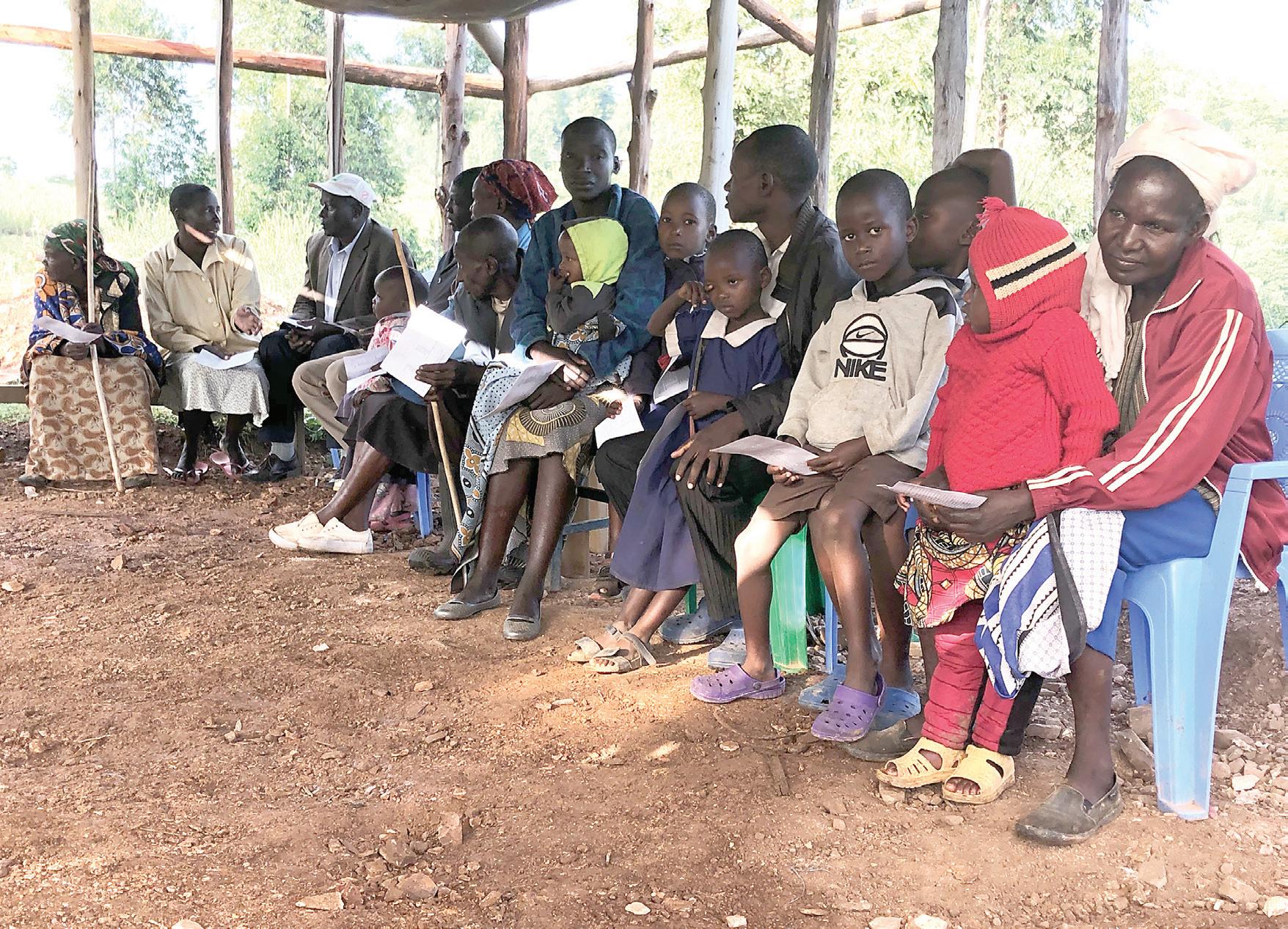
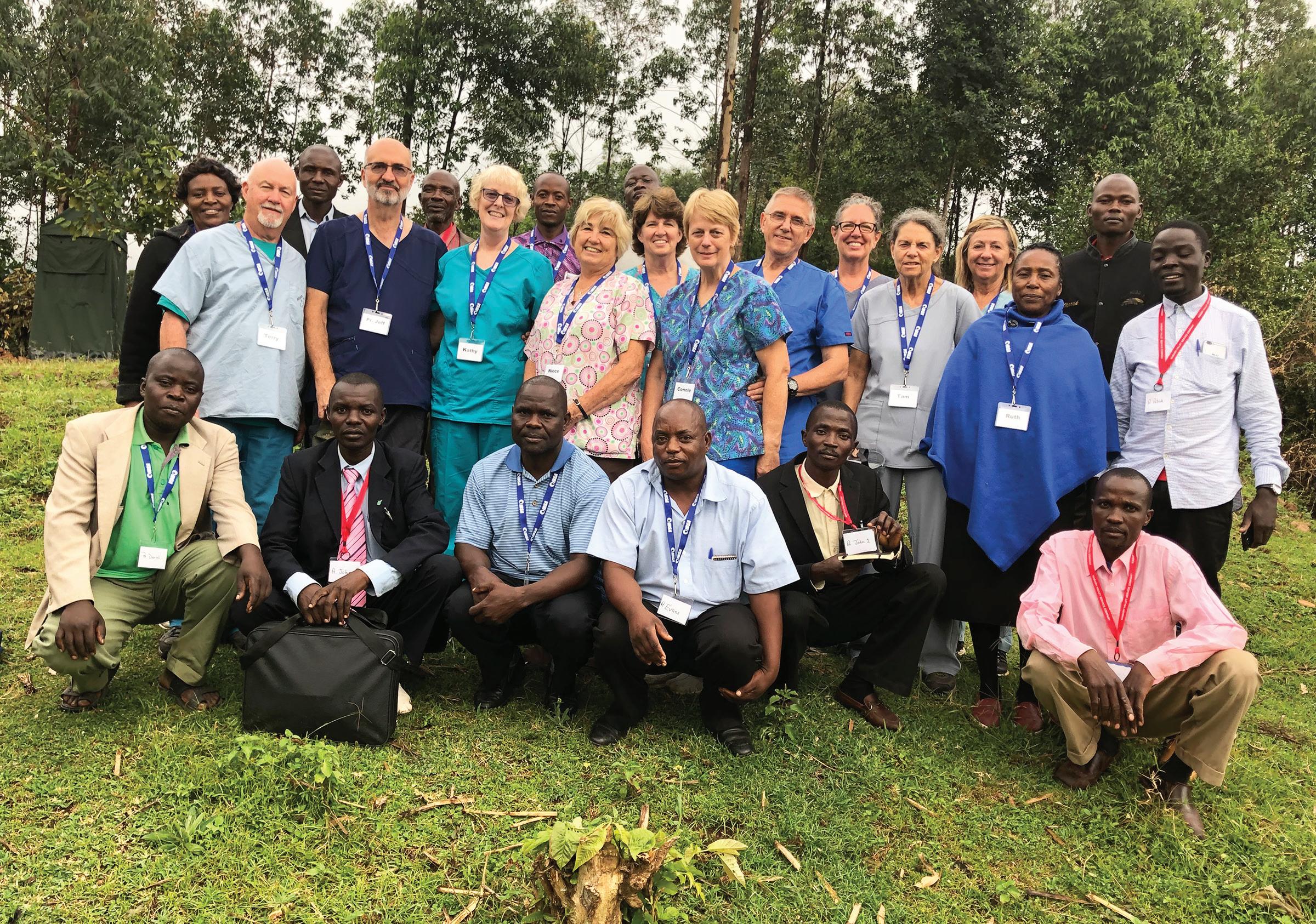
During the first two days, volunteers saw almost 500 patients (an average of more than 25 each hour), and Jeff Deasy reported 73 people made decisions for Christ.

DIVINE APPOINTMENT – Sheila Jessen (above, in the makeshift pharmacy) traveled home with Kathy Deasy from a previous mission trip to Kansas, where the two talked about the Deasys’ service in Africa and their dream to take a team back. “When the time came to sign up, I had no hesitation,” said Jessen, office coordinator for the Baptist Foundation of Illinois and a member of Chatham Baptist. “I just felt like this was what God was leading me to.”
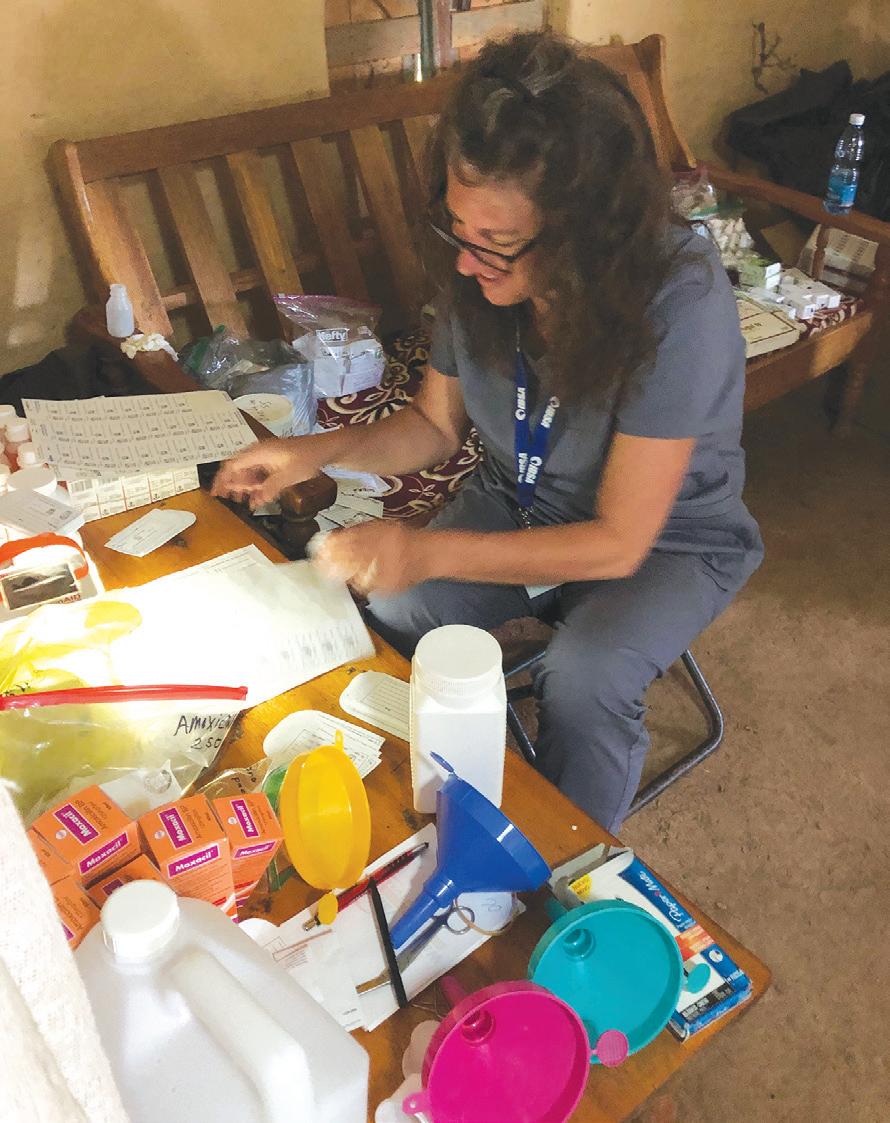
Missionary Mike Young has seen the impact of cooperation—abroad and at home.
See Mike’s story at IBSA.org/CP

The sexual abuse Susan Codone endured 35 years ago started as a friendship with a leader at her Alabama church. “For months, my young minister had showered me with flattering attention, telling me that God had chosen me to help his ministry,” Codone writes in her testimony, which introduces a Southern Baptist group’s report on sexual abuse in churches.
“This grooming led to 18 months of progressively worse sexual abuse, layered with threats.” Codone, now a Mercer University professor, endured subsequent abuse by her pastor, whom she confided in about the youth minister’s abuse. Both men, she says, eventually moved on to churches throughout the state. Her youth minister, she shared at the Southern Baptist Convention in Birmingham in June, spent 33 years in ministry.
“I am living proof that sexual abuse has been overlooked for many years in Southern Baptist churches,” Codone says in “Caring Well,” a report released this summer by the SBC Sexual Abuse Study Group. The group was appointed last year by SBC President J.D. Greear, months prior to a multi-part series in the Houston Chronicle documenting hundreds of cases of sexual abuse in Southern Baptist churches.
In Codone’s case, her abuse resulted in what she refers to as “catch and release.” Abusers are caught but then released, many to abuse again. The grooming behavior evident in her story was the subject of a recent IBSA workshop on helping churches protect children (see article at right).
“The cause of sexual abuse in the SBC is rooted in our culture of casual indifference to predatory sexual behavior,” Codone says. As Southern Baptists find a way forward, she and other survivors and advocates are urging them to throw off that indifference and any apathy related to abuse.
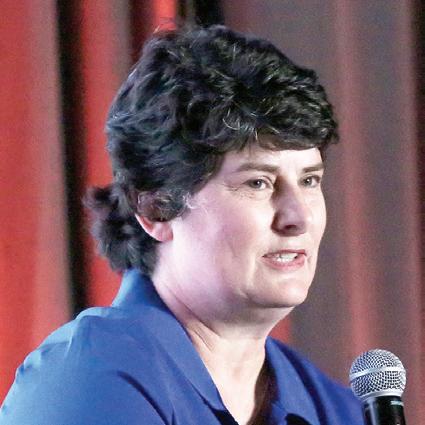
“Sexual predators won’t stop just because we start paying attention. We will never rid ourselves of their evil, but we can reduce the risk and protect our own.”
Morton | “You’re not going to leave this training feeling uplifted.”
Mark Emerson introduced a new IBSA workshop on creating a safe environment for children with a sobering series of statistics:

-90% of sexual abuse victims are abused by someone they know and trust.
-66% of those victims don’t report the abuse until they are an adult.
-Just 10% of offenders ever come into contact with the criminal justice system.
Emerson, IBSA’s associate executive director for the Church Resources Team, teamed up with Next Generation Ministries director Jack Lucas to offer the training at First Baptist Church in Morton May 16. The workshop was held as the Southern Baptist Convention considered its response to sexual abuse involving SBC leaders and churches. The denomination took action at its June annual meeting, including a “Caring Well Challenge” designed to help churches prevent future abuse and care well for survivors (see page 12).
In Morton, Emerson and Lucas shared that there are 60 million sexual abuse survivors in the United States. An astonishing one in five Americans will be sexually abused before the age of 18. Statistically, that data means 14 people in the average IBSA church are survivors of sexual abuse.
“Part of the problem is in our churches we don’t want to acknowledge that there is a problem,” Lucas said. “It happens in small churches, in large churches, small towns, and in big cities.”
A recent LifeWay Research study found 32% of Southern Baptist churchgoers believe many more Protestant pastors have sexually abused children or teens than have been brought to light (43% disagreed and 25% said they don’t know). Of those surveyed, 4% said they knew of someone attending their church who had sexually abused a child, but it has not yet come to light.
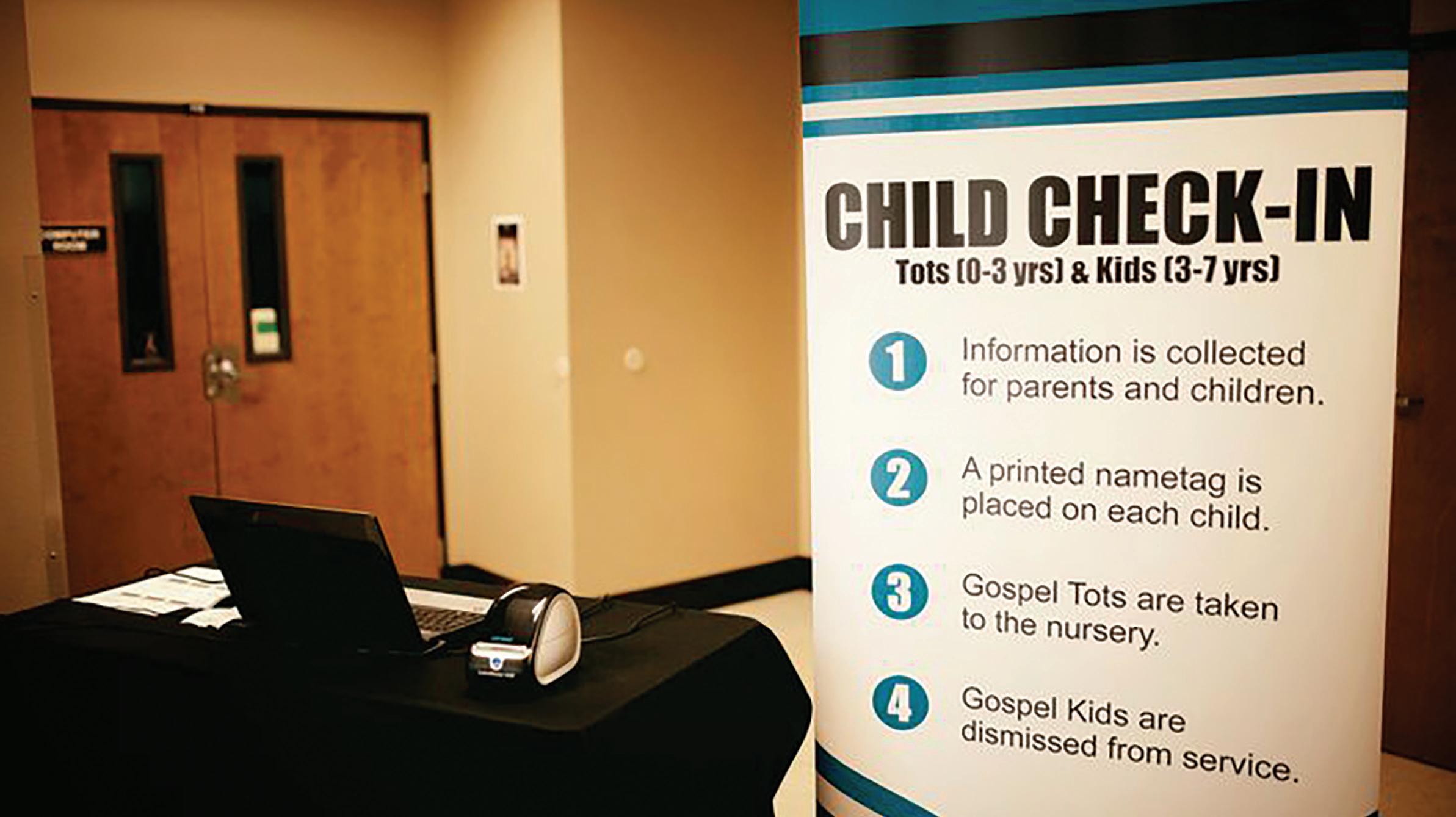
“Perceptions are reality,” said Scott McConnell, executive director of LifeWay Research. “When almost a third of churchgoers sense there is an avalanche of abuse and assault cases coming, Protestant churches must address this head-on, even if few say they actually know someone whose abuse is still hidden.”
At the IBSA training, Emerson and Lucas identified three types of abusers. The first is the abduction offender who has no previous relationship with the victim. Abduction offenders comprise 4% of abusers. More common is the peer-to-peer offender. “All bad behavior of a sexual nature is not from adults,” Lucas noted. “There’s been a 300% increase within schools in the last 3-4 years. More than 50% of reported abuse cases in Illinois are actually peer-topeer.”
The third, most dangerous type is the preferential offender—someone whose victim knows and trusts them. One statistic says 90% of child victims of sexual abuse know the perpetrator. “Check-in systems do not work against
Among U.S. Protestant churchgoers
Launched at the Southern Baptist Convention in June, the Caring Well Challenge is a unified call to action on the abuse crisis. The goal is to equip churches to be safe for survivors and safe from abuse. It provides churches with an adaptable and attainable pathway to immediately enhance their efforts to prevent abuse and care for abuse survivors. The Challenge launches Aug. 25 and includes eight steps:



Continued from page 11 preferential offenders,” Lucas said. “We can’t recognize the risk visually. We have to recognize risk behaviorally.”
That’s why it’s so important that churches learn to recognize the grooming process, the IBSA trainers said in Morton. “Grooming” refers to tactics an abuser uses in his or her relationship with a child to facilitate abuse.

When an offender is seeking to abuse a victim, he or she is generally looking to do so through deception, not violence, Emerson explained. And the abuser isn’t just grooming the victim, but also the gatekeepers—a pastor, the parents, church leaders. Grooming is about gaining access to the kids, and groomers often seek out career and volunteer opportunities related to children in churches.
“If there is somebody taking pictures, too much interaction, making friends with a couple to make friends with their child… You need to take note,” Emerson said. “There’s always that guy. If it’s done over the top you’ve got to take note of that.”
Emerson further described the groomer as someone who “appears helpful, trustworthy, and kind. He’s already picked out the child at your church. He knows what the targeted child wants or needs. He is skilled at age-specific communication.”
Groomers often target children who are: -unconnected, on the fringe, or in need; -seeking someone to follow or trust; -from a broken family or single-parent home, or seeking a father figure; or -already involved with alcohol or drugs, or pornography.
According to Emerson, a groomer will seek to introduce nudity and sexual touch into the relationship. He’ll do this through barrier testing and erosion, such as taking a child or youth home by himself after an event. Sexual discussion and joking will seep into conversations. Playful touch and “accidental nudity” might be introduced. He will create a culture where nudity and sex is acceptable or cool, including sharing magazines and movies.
Once he has succeeded in abusing his victim, the groomer will work to keep the victim silent through shame, embarrassment, and threats.

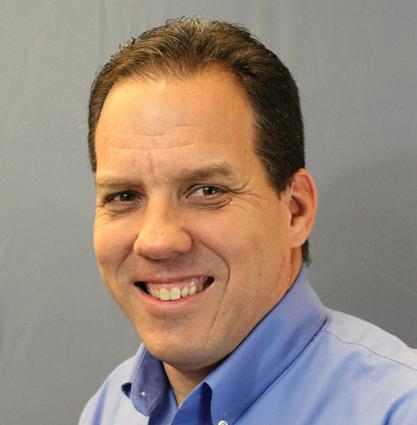
Emerson and Lucas urged churches to have child protection policies in place, including a purpose statement and clear definition of terms. “When you say child, youth, adult, staff, volunteer, approved worker, who are you talking about?” asked Lucas. “What do we mean when we say ‘child’? Is an adult someone age 21 and above?”
The next step is to define what it means to be an approved worker. This entails an application, background check, reference check, and safety training. “MinistrySafe is the best one we have found,” Lucas said, referencing the national organization dedicated to equipping churches in the area of preventing sexual abuse and ministering to victims.
A group tasked with studying abuse in Southern Baptist churches released in June a free 12-session video curriculum for churches. “Becoming a Church that Cares Well for the Abused” is available at churchcares.com.

There are some policy points that must be mandatory for churches, Emerson and Lucas said. For example, a two-adult rule protects children and the church, while also shielding workers in the room from a false accusation. If at all possible, do not put spouses together, the trainers advised. They also encouraged:
-a minimum 6-month attendance rule for all workers;

-approved-worker status;


-clear sightlines into each classroom; and
-check-in and release procedures.
If abuse has occurred, it’s important that churches offer professional counseling for those who are suffering, Lucas said. “In the life of a victim, something is really wrong and we as a church need to love that victim. We need to show them we care and want to protect them.”
For more resources on preventing sexual abuse in your church and caring well for survivors of abuse, go to IBSA.org/protect.

Before the close of their spring session, the Illinois General Assembly passed the Mandated Reporters Bill, SB 1778, which adds pastors to the list of people who are mandated reporters of child physical abuse and neglect. Clergy are already mandated reporters of child sexual abuse.
Some worry the bill could affect church ministries when a pastor is counseling a family who is having difficulty understanding discipline, or who has met the requirement for neglect found in the law. “If the pastor visits the home and sees there is no food, he would have to report them (the parents) to DCFS [Department of Children and Family Services] and then get the family food,” said Bob Vanden Bosch, executive director of Concerned Christian Ministries. “What would that do to a church’s ministry?”
During debate on the bill, Rep. Tom Weber (R-Lake Villa) asked who all is involved in “the clergy.”
“Is it Sunday school teachers? How far does this go?” Weber asked. “Will there be a state list of ministers? My concern is people who go on a website and get ordained, but they don’t know they’re mandated reporters. We need to reach out to them.”
If clergy should fail to report abuse or neglect, the first offense is a Class A misdemeanor, and a Class 4 felony for any subsequent offenses. Sen. Julie A. Morrison (DDeerfield) was the chief sponsor of SB 1778.
I moved several times as a boy and it wasn’t much fun. Each time I had to overcome old fears, break down unseen barriers, and make new friends. I never liked that feeling of being an outsider. I haven’t forgotten how it felt to my tender young soul. But it taught me some valuable lessons in helping to connect with guests at church.
Visiting a church can be awkward for a firsttime guest. They don’t know the people, the customs or the expectations. They can feel nervous, intimidated, or ignored. They might not even yet know the message of the gospel.
Here are some tips that can make a real and lasting difference as church members purposely connect with guests:

1. Talk to people you don’t know.
This is the simplest thing that you can do for guests. If you don’t know someone, say hello. Tell them you are glad to see them. I ask almost every Sunday, “Have I met you before?” If I have met them before, I apologize for forgetting and work to get to know them better.
In connecting with guests, just speak to them. Look them in the eye and say a simple greeting. Welcome them. Care about them. A surprising number of church members never do this.
2. Be friendly to people who aren’t yet your friends.
Every church in America thinks they are friendly because they are friendly to their friends. But being friendly to your friends does not make your church friendly to guests. I love that our members have church friends with whom they can talk and laugh and visit. But I want them to choose to meet some new people. One of my dearest college friends was the very last guy I met of all the guys on my dorm hall.
3. Learn their names.
Introductions usually involve us telling each other our names. But if we aren’t careful, we quickly forget. Our small groups have come up with a simple solution for this. We are starting to wear name tags. You can’t easily ask the name of a
I re-read this recently. I recommend it to any preacher wanting to learn how to communicate more effectively the message of God’s Word.
– Andre Dobson, pastor Calvary Baptist Church, Altoncouple in your small group who have been coming for months. It is embarrassing that you forgot. But name tags help us remember. And they are especially helpful for connecting with guests.
4. Read body language. If someone looks confused, they probably are confused. A simple, “Can I help you find something?” is helpful. With a little practice, you can begin to understand what people are feeling and thinking from their body language.
Guests often look a bit apprehensive because they are. Learning to read this allows you to do something about this. A friendly face and kind word go a long way toward lowering that nervousness.
Some of our guests want to remain fairly anonymous. They typically appreciate a friendly greeting but don’t always want deep conversation until they know if they can trust us. You may be able to read that. Perhaps you could say, “If I can help you with anything, just let me know.” Other guests would really like to have someone offer to sit with them. Or they might enjoy some friendly conversation. Body language is a language that communicates volumes when we begin to understand it.
5. Invite them to take the next connection steps.
It is entirely appropriate to tell a departing guest that you hope they come back. There is nothing wrong with letting them know about small groups, an upcoming special event or membership class, or classes for their children.
Welcoming a first-time guest is just the start of the assimilation process. A warm welcome goes a long way. But we want more than that for our guests. We want them to consider and trust the claims of Christ. We want them to join us on this discipleship journey. And ultimately, we want them to join us in welcoming other guests and helping them to follow the Lord as well.
Doug Munton is senior pastor of First Baptist Church in O’Fallon. He blogs at dougmunton.com.

New Morning Mercies
Paul TrippThis is my current favorite devotional and a source of encouragement that I think all people, leaders or not, should be reading.
– Carrie Jones, teacher and former Illinois student/missions leader
I’m uncomfortable that two of our staff members are related to our deacon chairman. Nepotism is a problem, right?
A Q
Today’s churches are doing more and more in-house hiring for various ministry positions. If the person being hired is capable and able to do the job as expected, he or she should be judged on their own merits. But there are pros and cons with hiring someone “in the family.” They know the church and its ministries, and already have a strong connection with the people. But if an employment problem or conflict arises, nepotism can cause turmoil that will negatively impact the church. Each situation should be weighed carefully.
QOur small church only has two or three children’s workers. Do we really need a screening system with fingerprinting, etc.?
A
Simply put, yes, yes, and yes! Even after you’ve conducted a background check, criminal check, and made the best possible effort with people you already know well, most courts would judge against the church if any incident occurred. A background check for anyone working with children is an absolute must. Let your members know no one is a suspect, but the church wants to assure every parent that proper and diligent precautions have been taken. Again—yes, yes, and yes!
Pat Pajak is IBSA’s associate executive director for evangelism. Send questions for Pat to IllinoisBaptist@ IBSA.org.




Todoist App
I’ve loved this app over the last year. It helps me keeps my tasks organized.
– Nathan Carter, pastor Immanuel Baptist Church, Chicago
Read: Colossians 3:1-4
Ask 10 different people to define what it means to be a Christian and you will probably get 10 different answers. The name Christian is often claimed in our culture today, but the corresponding lifestyle is often absent. This disparity has left many confused on what authentic Christianity looks like.
Christianity is an external demonstration of the internal reality that by faith we have been united with Christ and hidden in him. Our position in Christ is the foundation and motivation for our daily walk in the world. That’s what the Apostle Paul wants the church at Colossae to understand; faith must have a function.
ADRON ROBINSON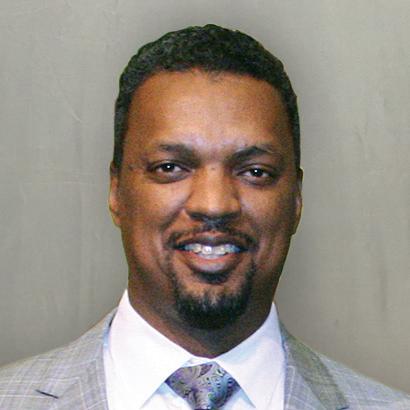
We live in a world full of doubt, disagreement, and downright evil. And the only answer to the ills of this world is the transformational power of the gospel.
Our family members, neighbors, co-workers, and friends need to see living displays of the resurrected life. We need to invite them into our homes and our dinner tables and let them see what compassion looks like, what forgiveness looks like, and what love looks like. We need to talk to them and not at them, to listen to their concerns and their struggles. We need to offer them the hope of the gospel along with a loving display of the gospel.
Many of them won’t come to church, so the church needs to go to them and display the resurrected life.
They will never stop cursing people out by their own power. They will never stop gambling away their savings by their own power. They will never stop lusting by their own power. They need the power that is greater than willpower. They need resurrection power! But if we don’t live the resurrected life, how can we expect to resurrect a dead culture?
Prayer Prompt: God, we were born in sin, yet by your grace you made us alive through faith in Christ. Now help us to live in light of the resurrection so that others may believe in you.
As I was reading through Romans recently, I came across a verse I’ve seen several times. This time, however, it caused me to pause. The Apostle Paul wraps up the letter by sending his greetings to people who were special to him personally. One of those individuals was a man named Apelles. “Greet Apelles, whose fidelity to Christ has stood the test” (Romans 16:10).
I’ve never heard of Apelles. He’s not to be confused with Apollos. He wasn’t as well-known as Paul or Peter. He did not possess the notoriety of Barnabas or Timothy. Yet, as I thought about it, the one thing he is forever remembered by from this account in Scripture, is his faithfulness to Christ.
I began to think through how, if I could be remembered by one line, what impression I wanted to leave. I couldn’t think of anything better than the legacy Apelles lived and left.
So, how do we develop a faith that stands the test? In my personal observation, it’s not by constantly looking back at past failures or successes, or by constantly looking around at current problems and struggles. Standing the test comes by looking forward to the time we stand before Jesus and our potential reception of eternal rewards.
Randy Alcorn writes, “Five minutes after we die, we’ll know exactly how we should have lived. But God has given us his Word so that we don’t have to wait to die to find out. And he’s given us his Spirit to empower us to live that way now.”
Missionary and martyr Jim Elliott wrote prior to his death in an Ecuadoran jungle, “He is no fool
who gives what he cannot keep in order to gain that which he cannot lose.” Then he proved it. And pastor and evangelist Johnny Hunt puts it succinctly: “I wish to live in a way that I would have hoped I had, once I get to heaven.” When we live in light of eternity, recognizing that we will stand before Jesus at his judgment seat, we are reminded that everything matters now.
Paul describes the moment: “For we shall all stand before the judgment seat of Christ” (Romans 14:10). “For we must all appear before the judgment seat of Christ, that each one may receive the things done in the body, according to what he has done, whether good or bad” (2 Corinthians 5:10).
What Paul describes in these verses is the bema judgment seat of Christ. It is reserved exclusively for believers. Heaven and hell are not at stake; the rewards for our service are. In New Testament
days, a bema seat resembled a stair step. It was used as the official seat of a judge in a sort of tribunal. It resembled a throne that Herod built in the theater of Caesarea by the Sea, from which he watched the games and made speeches.
It was at a bema that Paul stood before Felix and later Agrippa in Acts 24 and 24. Festus was “sitting on the judgment seat” (Acts 25:6). And there Paul desired to make his appeal in Rome: “I stand at Caesar’s judgment seat” (Acts 25:10).
Jesus is watching
How we treat other believers, Heb. 6:10
How we employ our spiritual gifts, 1 Peter 4:10-11, 2 Tim. 1:6

How we use our financial resources, 1 Tim. 6:17-19
How much we suffer for Christ, Matt. 5:11-12
How we spend our time, Eph. 5:16, 1 Peter 1:17, Psalm 90:12
How we run the race God has assigned to us, 1 Cor. 9:24-27
How many souls did we win to Christ, Dan. 12:3
How do we react to trials and temptations, James 1:2-3, 12
How much the doctrine of the Second Coming matters to us, 2 Tim. 4:8
How we use our words and guard our mouth, Matt. 12:36
How faithful we, as pastors, are to the calling of God and the people of God, 1 Peter 5:2-4
How we, as leaders, exercise our authority over others, Heb. 13:17
Every believer will give an account of himself and the Lord will judge those decisions believers made. Paul, knowing and believing this, wrote, “Therefore we make it our aim, whether present or absent, to be well pleasing to him” (2 Corinthians 5:9).
Understanding how Jesus will judge believers does two things. It challenges us to focus intently on those areas we know will be reviewed, clarifying what is ultimately and eternally important. And it reminds us that while the Christian race is difficult at times, in the end it all will be worth it.
Adam Cruse is pastor of Living Faith Baptist Church in Sherman. He is concluding his term as IBSA vice president.

A list of faithful people in Romans made me consider my own actions.I found the perfect Christian Tour... “Where Paul would have preached, had he traveled to Hawaii.”
Find more information on ministry positions at IBSA.org/connect. Send NetworkiNg items to IllinoisBaptist@IBSA.org.
Fellowship Baptist Church in South Chicago Heights is seeking a pastor Applicants must hold true to the beliefs of The Baptist Faith and Message (2000), and the high calling given to us by the Lord Jesus Christ. Position would be bivocational to start; salary available upon request. E-mail resume and cover letter to: resume.fellowshipbaptistchurch@gmail.com.
CLASSIFIED ADS
Mineral Area Baptist Association in Farmington, Mo., is searching for a bivocational Director of Missions
Must be a Spirit-filled man to fulfill our vision, upholding the unity of our churches. A strong supporter of MBC & SBC, must affirm The Baptist Faith and Message (2000), be a strong administrator, a pastor to pastors, a ministry/missions strategist, and able to strongly support our camp ministry. Send resumes to MABA, Attn: Search Committee, 5169 Flat River Rd., Farmington, MO 63640, or mabasearchcommittee@gmail.com
FBC Lake St. Louis, Mo., is seeking a full-time senior pastor. Senior pastor experience is required. Please submit resume to psc@fbclsl.org.
Illinois Family Institute is looking to hire a winsome and articulate Christian from central Illinois to lobby at the Capitol in Springfield for pro-life/profamily values. Interested candidates should e-mail a cover letter and resume to s.david@illinoisfamily.org.
Dorsett Village Church in St. Louis County is prayerfully seeking a fulltime pastor. Please send resumes to dvcpastorsearch@gmail.com.
I recently heard a ministry leader say that everyone—no matter how healthy they seem—could benefit from counseling. Do you agree? If I’m praying and reading the Bible, would counseling otherwise benefit my walk with Jesus?
I agree we all may benefit from counseling at pivotal points in our lives. Working with a qualified Christian counselor can help to enrich and deepen our relationships with one another, and with God.
Most of us have gone through times in our lives when we worked hard to do all the right things, including reading Scripture and praying faithfully. At the same time, we may have felt distant or even overlooked by God. I agree, the sanctifying acts of reading God’s Word and praying are vitally important and should be part of our everyday Christian obedience; however, I have counseled many obedient Christians who found themselves feeling utterly alone. Counseling can help us discover more fully the nature of God, the grace of God, and the enjoyment of God.
God’s relationship with us is built upon his qualities, not our own. Counselors are relationship experts who know that when we
are enjoying the presence of God, we are actively engaged in a healing relationship. You may have experienced this in your other relationships. Have you noticed how much closer you feel to a child, a parent, or a co-worker when you enjoy their company? The enjoyment of God is a choice we can make all day long. Developing a meaningful understanding of God’s grace will motivate us to read the Bible and pray to know him more.
As Christians we often refer to our walk with the Lord; how might it change our relationship with God to realize it is his walk we have been invited to join?
Happily, I see less stigma attached to counseling within the Christian community today than ever before. I am also encouraged that your ministry leader understands the challenges and potential anxiety we all will face. A mentor of mine once made this unforgettable observation, “No one gets through this life unscathed.”

Mark McCormick is director of clinic operations for Illinois Baptist Children’s Home and Family Services. Send questions for Mark to IllinoisBaptist@IBSA. org.

Q AMy husband and I are debt-free, and we have an emergency fund of six months of expenses saved. We’d like to buy a home in the $250,000 to $275,000 price range in the near future, and we plan on saving $60,000 for a down payment. It should take a little less than two years to save that much money. When should we begin the search for a good real estate agent and start the underwriting process?
I’m really proud of you two.
You’re being very intentional and goal-oriented about getting control of your finances and the home buying process.
I’d advise starting a conversation with a quality mortgage company when you’re five or six months away from your savings goal date. There’s “pre-approval,” but there’s also something called “certified,” which basically puts you in a position to make an offer when you’re ready for the purchase. So, getting certified as a buyer is very helpful. After that, sit down and talk with a few agents. Find an experienced agent you’re comfortable with to guide you through the real estate world, and then start outlining your search and buying strategy. What I would not do is jump from agent to agent. There’s a tremendous benefit in finding someone you trust and feel good about. I’m talking about a buyer’s agent who’s going to fight for you. This means someone who will show you several different properties, keep your wants and needs foremost in their mind, and help you get the best possible buy on your new home!
QWhen you talk about mortgage payments being 25% or less of your take-home pay, does this figure include taxes and insurance or just principal and interest?
AThat figure includes taxes and insurance, too. The whole idea is to make sure your house payment is manageable. You don’t want to have so much money going toward your mortgage every month, what I call being “house poor,” that you can’t take care of your other financial responsibilities or enjoy life.
Trust me, I get it. A home is a huge expense that very few people, especially those just starting out, can afford to pay for in cash. That’s why I don’t beat people up for getting a 15-year, fixed-rate mortgage. But that’s the only kind of mortgage I recommend.
And yes, make sure the monthly payments are just 25%, or less, of your takehome pay!
A one-day youth evangelism event offering great music with Christian artists and top speakers for teens.

For more information, go to IBSA.org/YE2019

july 27-August 3

What: Summer missions emphasis with projects developed by local churches and associations
Where: July 27: Beardstown; July 31-Aug. 3: Christian Activity Center, East St. Louis; Aug. 3: Nine Mile Association Register: IBSA.org/Spectacular
More believers fly under the radar

Choose from multiple ministry sites around the state, each with individual projects for your family or your church to participate.
July 13-20

What: Challenging, hands-on missions opportunities for students who have completed grades 6-12
Where: Peoria
Cost: $180 per person
Register: IBSA.org/ILChangers
July 14-19
These week-long projects provide challenging, hands-on mission opportunities that allow participants to see how God can work in and through their lives in practical ways.
Students are inspired to pursue the presence of God through small groups and Christ-centered teaching, connect with other students from around the state, and make new friends who can encourage their daily walk.
Where: Lake Sallateeska
What: Exciting Bible teaching, hands-on activities, and fun recreational experiences for students who have completed grades 6-12
Cost: $270 per person Register: IBSA.org/Students
August 10
What: Training focused on the worship needs of smaller churches, for choir and praise team members, vocalists, and instrumentalists
Where: Towerview, Belleville Register: IBSA.org/Worship
August 13
What: Quality, free training in women’s and men’s ministry, worship, students, outreach, leadership development, safety, social media, and more Where: FBC Bethalto; 6-8:30 p.m. Register: IBSA.org/TrainingNight
August 24
What: Quality, free training in women’s and men’s ministry, special needs ministry, family ministry, music ministry, safety, social media, and more Where: FBC Fairfield; 8-11:30 a.m. Register: IBSA.org/TrainingDay

August 29
What: Introduction to IBSA staff, ministries, training, and opportunities, for pastors and church staff members
Where: IBSA Building, Springfield Info: AubreyKrol@IBSA.org
Christians aren’t as public with their faith as they used to be. In a new study by LifeWay Research, about two-thirds of Protestants said other people know they are Christians, but a growing number are less open.

39% of people who regularly attend Protestant churches say conversations about spiritual matters do not come up in their daily lives, while only 15% strongly assert that matters of faith are a part of their regular conversations with fellow believers.

More likely: women, African Americans, Hispanics, evangelicals
Less likely: men, whites, mainline Protestants, younger Christians
“In an increasingly secular culture, fewer people assume you are a Christian,” said Scott McConnell, executive director of LifeWay Research. “Disciples now must decide if their identity in Christ is important enough to them to bring up in conversations.”
“Far more people identify as a Christian on a survey than they do among their acquaintances…. One-in-five churchgoers is missing the truth found in Matthew 10:32 that acknowledging Jesus before men is tied to whether Jesus will acknowledge us before his Father.”
Protestant churchgoers believe God is relevant to every part of their life and identity. That was reported by half of women (51%) and one-third of men (35%). Younger respondents were least committed to the concept of God’s involvement in their lives (34%)
“While most churchgoers avoid compartmentalizing their faith, it can be challenging to walk with God in every area of life,” said McConnell. “The majority of churchgoers indicate there are more aspects of who they are that can be better connected to God.”
– With reporting by Baptist Press